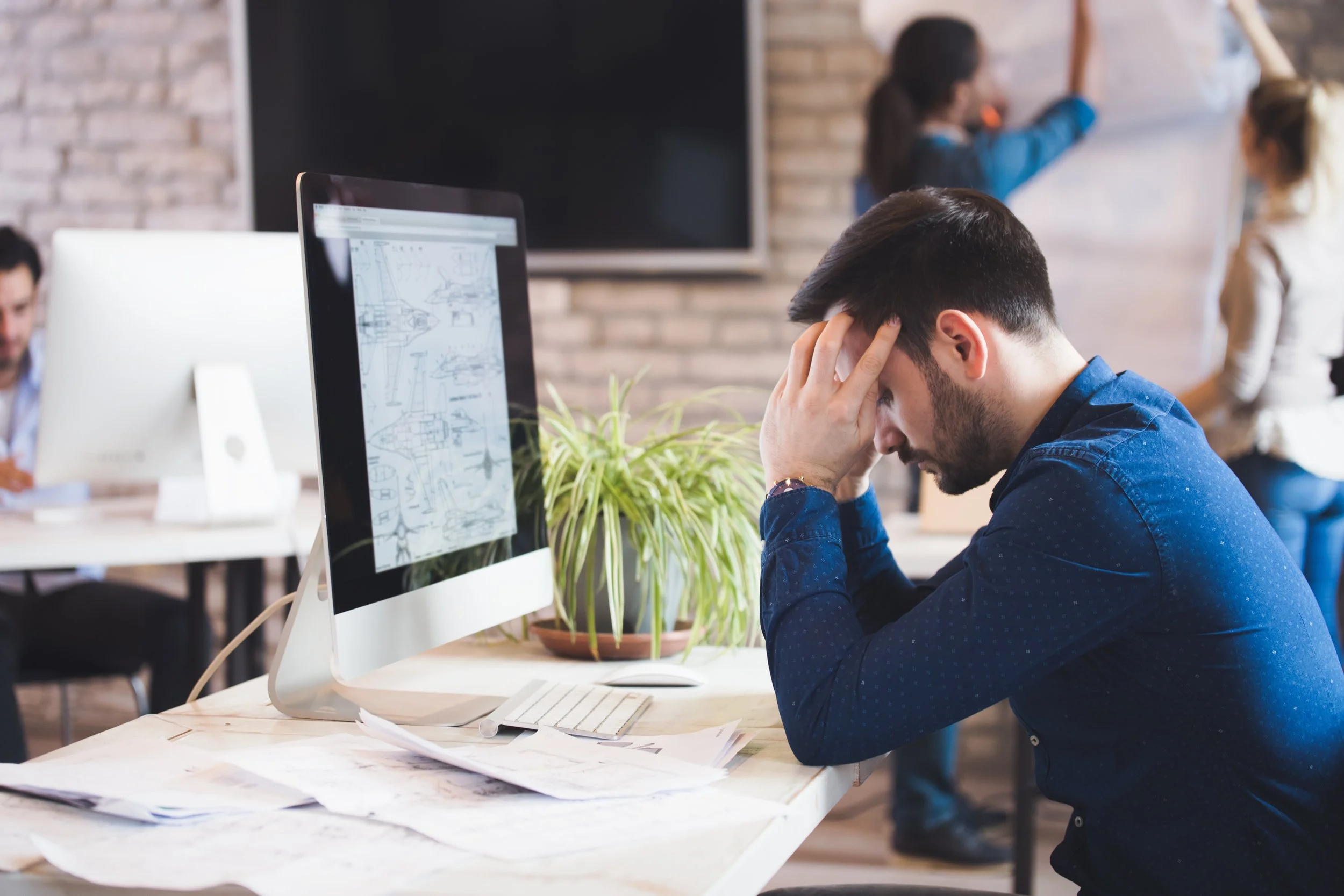Break the Burnout Cycle With These 5 Tips
As we continue to witness the global pandemic crisis progress in an unknown direction, we all wonder what the next steps will be. How long will we stay in quarantine? Will we be able to pay our rent on time? When will our kids go back to school? And what will our future look like? These questions alone, create a lot of stress and make us live in a state of limbo, as we adapt to our ‘new normal’.
Hilt International Security partnered up with Elevate (formerly known as Breathe), in order to bring awareness to the topic of ‘burnout’, and what can be done to avoid unhealthy patterns. During emergencies or incidents, frontline workers, emergency responders, security and emergency professionals, etc., are particularly susceptible to experiencing burnout.
However, it is important to note that burnout can happen to anyone, in any line of work. What we might share, may sound obvious, however, we are all guilty one way or another, of not practicing self-care. Thus, this article is not written to tell you what to do, but to educate you, and hopefully save or break you from the burnout cycle.
WHY DOES BURNOUT OCCUR?
Emergency responders are a particularly susceptible group to burnout. A sustained combination of long hours, intense workplace demands, constant exposure to life threatening situations, ‘compassion fatigue’, and even a lack of PPE in the current climate, can lead to excessive drain on energy levels and a high rate of burnout.
Burnout is a state in which our personal levels of resilience have been compromised; generally characterised by feelings of extreme fatigue and complete overwhelm. It typically manifests as exhaustion, cynicism and loss of interest in, or inability to complete, general work tasks.
It can also lead to increased drug or alcohol use. It represents the erosion of our physical and mental well-being; impacting our sleep, nutrition, ability to exercise, our relationships or social support, and our mindset.
WHO IS MOST SUSCEPTIBLE TO BURNOUT?
Beyond the obvious workplace factors leading to high levels of burnout in this group, intrinsic factors can also accelerate the burnout process. Meaning that if an individual has an excessively A-type personality, has a high external locus of control, or has developed poor coping mechanisms throughout life, this will compound the impact of workplace stressors.
Layering these variables with other significant life events such as loss of a loved one, relationship difficulties, or loss of spousal income for instance (secondary challenges experienced through COVID-19), you can start to see why the current pandemic is taking a toll on our health care workers particularly.
TIPS AND TRICKS FOR BUILDING YOUR RESILIENCE - PERSONAL APPROACH
1. Sleep
Plan and experiment in advance for optimising your sleep. Try eye masks, blackout curtains, ear plugs, magnesium or melatonin supplements (check with your doctor first), meditation (body scan meditations prove particularly useful) or music (there are some great soundtracks of nature, ocean noises etc. that may prove useful). Not all will work for you so find out what does and make it a part of your night-time routine.
2. Relationships/Social Support
Crying with a trusted friend, talking through feelings and generally letting feelings out in a safe space is actually an important way to release built up stress and tension. Withdrawing or hiding your feelings will, over time, contribute to stress levels and increase your chance of burnout. So maintain close contact in particularly tough times. As they say, “a problem shared is a problem halved”.
3. Nutrition
When the long hours and tiredness kick in, caffeine and sugary and fatty foods tend to be our go-to. Wherever possible though, opt for healthier alternatives. Low GI-foods are slowly digested and absorbed and will cause smaller rises in blood sugar levels, meaning your energy can be sustained for longer without the sugar spike and crash. Seek out green vegetables, lean meats, fatty fish, beans, eggs and most fruits for main meals.
Try to pre-prepare snacks (or have a family member assist you) for when you’re on the go and may not have time to eat. Things like carrots and hummus or trail mix are quick and easy. Stay well hydrated with water, use coconut water to replenish electrolytes when needed, and try Green Tea instead of coffee.
4. Exercise
If it’s hard to get this in when off-shift, consider how to incorporate additional exercise while on shift. When can you take the stairs instead of the lift? Are there any tasks you can do while walking instead of sitting? For many emergency responders, for whom the job requires some form of physicality, you will likely not fall short in this area while on shift. However, it might be useful to combine some mindful movement, like gentle yoga or stretching, either throughout the day or as part of your night-time routine to help you decompress.
5. Mindset
The ability to re-frame your experiences using mindfulness and perspective can contribute to a positive mindset. Many apps exist on the market now where you can listen to meditations or short motivational talks and, when used consistently, these can start to rewire your thinking towards greater optimism, decreased impulse reactivity, and a sense of calm.
HOW CAN WORKPLACE LEADERSHIP HELP - BUSINESS APPROACH
Often it’s the difference between ‘availability’ and ‘accessibility’ which most supports our resilience. Meaning that we may have a good window for sleep but we simply can’t access it - we’re just unable to switch off. Other times, we may have a great social support system in place, however if we are working longer hours than usual, or on a night shift for instance, then our ability to access that resource might be inhibited. This is when organisational culture becomes key and noticing the signs of burnout early - in order to prevent systemic challenges.
It is important for senior management and team leaders in emergency response to understand and recognise what the symptoms of burnout are and to have plans in place to support the workforce with their recovery. Wellness plans need to become an integral component of workplace culture as does the ability for staff to openly discuss challenges with their mental well-being. Removing any stigma around such discussions needs to become an organisational priority.
Additionally, leaders have a responsibility to regularly examine workplace conditions and to survey their staff for feedback. Leaders have the ability, and a responsibility, to better manage shift durations and frequency, create adequate break areas offering nutritious food options, provide opportunities for exercise onsite (where possible) and even to create supportive spaces where staff can briefly sleep, meditate, pray, or otherwise decompress.
PRACTICE RESPONDING WITH EASE AND CALM
Becoming aware and taking appropriate action, does not happen overnight, and it takes discipline in order to get a desired outcome. For instance, a first responder or security professional will not just respond to a disaster without training, practice, proper procedures, and the right resources.
They will need to know what to prepare and mitigate prior to a potential disaster hitting. However, even then, we cannot be prepared for everything. In those moments, it is important that we do not become discouraged. Thus, establishing a life-long commitment to a sustainable type of living, brings a peace of mind when you find yourself physically and mentally preparing for a particular situation.
At the end of the day, you might not notice you are experiencing burnout. You may find yourself in a situation where professionals, family or friends, are pointing out your symptoms. However, the first step always needs to come from within. We hope that this article, has inspired you to take the first step to recognising your own cycle, and to move forward to a healthier and a more aware future.
If you’d like some guidance in addressing and reducing burnout whether for your organisation or through individual coaching, schedule your free 20 min discovery call here.
AUTHORS
Jacqui Edmiston of Elevate (formerly known as Breathe) and Suzanna Alsayed of Hilt International Security.


